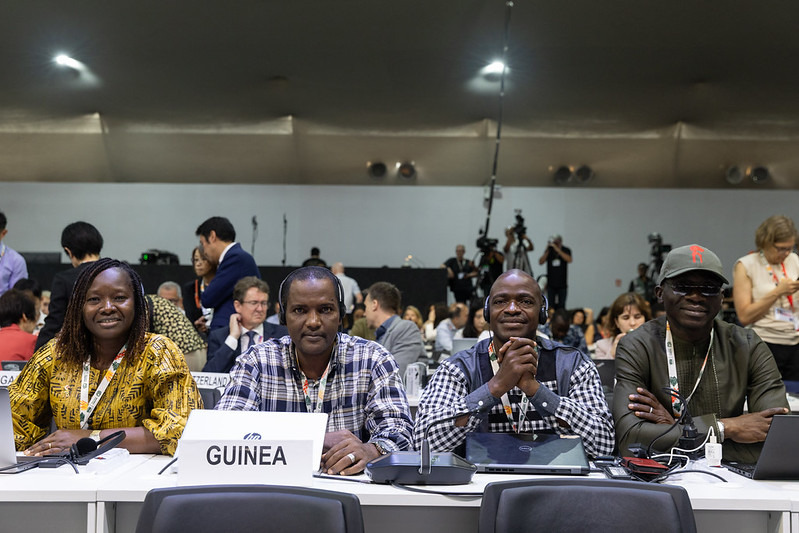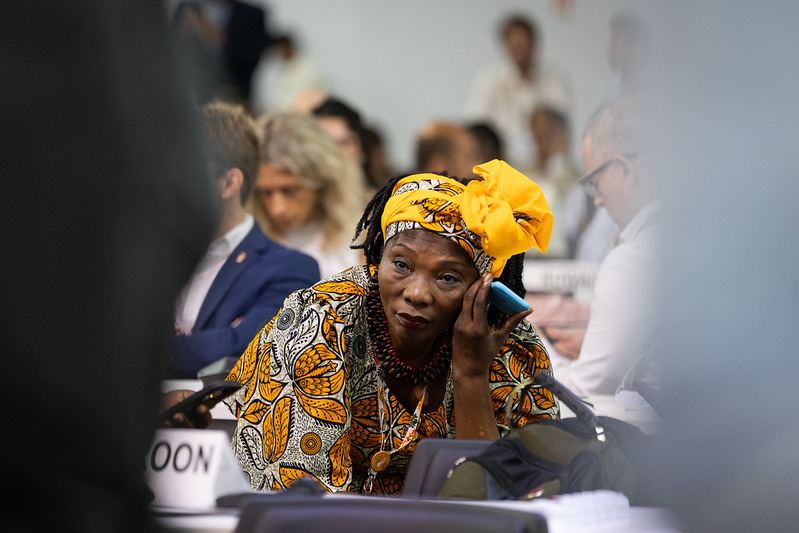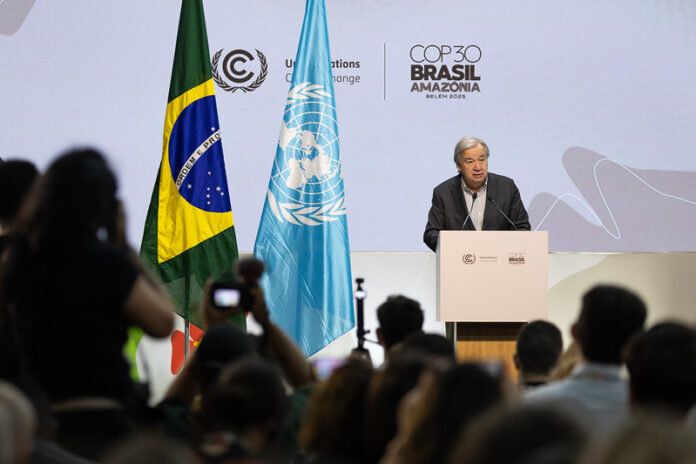UN chief António Guterres has called on governments to have the courage to agree a balanced political package that is concrete on funding adaptation, credible on emissions cuts, and bankable on finance.
For the first time, he rallied behind a demand from the world’s poorest countries to triple finance to help them adapt to more extreme weather and rising seas to $120 billion a year by 2030.
Addressing the COP30 Climate Change talks in Belem, Brazil, he noted that communities on the frontlines are watching the UN summit for action.

“Counting flooded homes, failed harvests, lost livelihoods and asking ‘how much more must we suffer?’… they have heard enough excuses, they demand results,” he stated.
For Mr. Guterres, “tripling adaptation finance by 2030 is essential.” He believes it is also possible and desirable and he hoped developed countries would accept to engage in this objective at COP30 if their concerns on emissions reductions are addressed.
The Africa Day at COP30 was marked under the theme: “Africa at the Forefront of Climate Action: Sustainable Financing for Resilient and Inclusive Green Growth”, reaffirming the continent’s united call for a new era of climate finance that delivers for people, planet, and prosperity.
Discussions focused on mobilizing sustainable, equitable, and innovative finance to accelerate Africa’s green industrialization. Leaders highlighted that Africa’s future lies in leveraging its abundant natural resources for value addition and local manufacturing from processing critical minerals to scaling renewable energy solutions.
“Africa already stands at the forefront of global climate action, shaping solutions that are both locally grounded and globally relevant”, said Dr. Kevin Kariuki, Vice President for Power, Energy, Climate and Green Growth of the African Development Bank Group.
For decades, Africa’s climate narrative has been defined by contradiction. The continent hosts 20% of the world’s carbon sinks and contributes less than 4% of global greenhouse gas emissions, yet receives under 10% of adaptation finance and only 3% of total climate funding, this shortfall carries existential consequences.

Developed countries have repeatedly failed to honour their financing commitments, and Africa’s adaptation needs continue to outpace the resources available.
The commitment of developed countries to double adaptation finance to at least $40 billion by 2025 already slipping away.
The latest estimate of developing countries’ annual climate adaptation needs for 2035 outstrips current funding by at least 12 times, with rich nations providing just $26 billion in 2023, according to the annual UN Adaptation Gap Report.
If current trends continue, developed countries are set to miss the 2025 target that they committed to at COP26 four years ago, UNEP’s report said.
As COP30 entered its final stretch, African Non-State Actors on climate justice, under the umbrella of the Pan-African Climate Justice Alliance, called for “an outcome that protects our societies and economies, strengthens resilience, and advances a fair and development-centred global transition”.
The group demanded for more than triple adaptation finance by 2030, with a clear public-finance pathway, and “a fully capitalised fund for responding to Loss and Damage with new, additional, predictable finance, and as a guarantee mobilized from public sources”.
Africa CSOs are seeking a fast-track support for resilient agriculture, water and health systems, coastal protection, and community adaptation complimented with early warning systems.
“For millions, adaptation is not an abstract goal. It is the difference between rebuilding and being swept away, between replanting and starving, between staying on ancestral lands or losing it forever,” said António Guterres.
The UN chief has urged wealthy governments, climate funds and development banks to step up and prevent further tragedies.
“It’s about survival, it’s about justice – and for Indigenous peoples, it is also about protecting cultures and homelands that sustain our planet’s vital ecosystems,” he noted.
He says it is the responsibility on big emitters to do more while ramping up emissions-cutting efforts.
Source: Kofi Adu Domfeh


